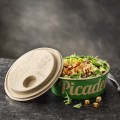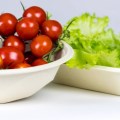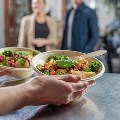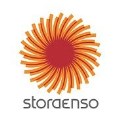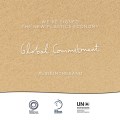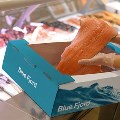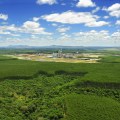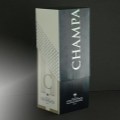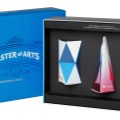If this is your company, CONTACT US to activate Packbase™ software to build your portal.


Stora Enso has started the production of formed fiber food service products at Hylte Mill in Sweden. The production ramp-up follows the investment announced in 2019 and enables the manufacture of products that are renewable, recyclable and biodegradable. The PureFiberTM by Stora Enso eco-product range is produced without plastic and per- and polyfluoroalkyl substances (PFAS), enabling a safe and sustainable alternative for fresh food packaging. The Group is also investing in more formed fiber capacity in Sweden and China.
Through its partnership with HS Manufacturing Group and its patented technology, PROTĒAN®, Stora Enso offers a plastic-free barrier technology for food contact packaging applications. The joint patent-pending technology offers a recyclable and biodegradable solution that gives fiber-based packaging water-, grease- and oil-resistant barrier properties, without plastic or PFAS. The solution can be applied for a range of products, such as single-use food service items. A Life Cycle Analysis study shows that the PureFiberTM product line has a CO2 footprint that is approximately 75% lower compared to competing packaging materials.
“Market demand for formed fiber products is accelerating, and these products offer a unique solution to meet that demand. Single-use plastics are already banned in many countries and PFAS in food applications are increasingly scrutinised by health authorities. This ramp-up marks our first step in putting a new generation of sustainable and safe formed fiber products on the market,” says David Ekberg, Executive Vice President, Packaging Solutions Division at Stora Enso.
To meet the demand for formed fiber solutions, Stora Enso is investing in additional production capacity in Hylte Mill in Sweden and Qian’an Mill in China. The annual capacity at both mills will be approximately 115 million units of products.
“Expanding our formed fiber production in China will support the Chinese efforts to replace single-use food packaging with sustainable and safe alternatives,” says David Ekberg.
A formed fiber product is manufactured by pressing various wood-based pulps into a three-dimensional shape in a moulding machine. The raw material used in PureFiberTM products is pulp made from wood from sustainably managed forests.



